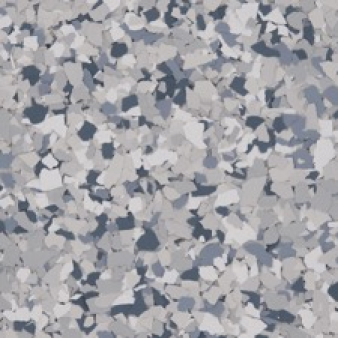
Top Basement Flooring Options Over Concrete: Finding the Best Fit for Your Home
Choosing the right flooring for your basement can transform this often-underused space into a cozy family area, a functional home office, or a lively entertainment room. Concrete, the most common subfloor material in basements, provides a solid foundation but might not offer the warmth and comfort desired for a living space. Here’s a detailed look at some of the best flooring options to consider when finishing your basement over concrete.
1. Engineered Wood
Benefits: Engineered wood combines the warmth and beauty of natural wood with increased moisture resistance, making it suitable for basements. Its construction consists of a real wood veneer attached to multiple layers of plywood or high-density fiberboard. Unlike solid hardwood, engineered wood can withstand slight changes in moisture and temperature without warping.
Considerations: While engineered wood is more resistant than solid wood, it is still susceptible to water damage in the event of flooding. To mitigate this risk, ensure your basement is well-sealed and waterproofed before installation. Additionally, consider the cost of engineered wood, which can be higher than other flooring options due to its construction and aesthetic qualities.
2. Luxury Vinyl Plank (LVP)
Benefits: Luxury Vinyl Plank (LVP) flooring is one of the most durable and water-resistant options available for basements. It comes in a variety of designs, mimicking the look and texture of natural wood or stone. LVP is easy to install, often featuring a click-lock system that floats over the concrete, which makes it ideal for DIY projects.
Considerations: Choose a high-quality LVP with a thick wear layer to ensure it stands up well to traffic and wear over time. Some cheaper versions may not perform as well under heavy use. Also, consider the underlayment; using an appropriate underlayment can improve moisture resistance and add insulation.
3. Ceramic or Porcelain Tile
Benefits: For durability and moisture resistance, few materials can match ceramic or porcelain tile. Tiles are non-porous and can handle not only moisture but also spills and stains, making them a practical choice for a basement. Available in a wide range of styles, colors, and patterns, tiles can fit any decor.
Considerations: Tile can be cold underfoot, which might be uncomfortable in a basement setting without in-floor heating. It also requires a perfectly level subfloor for proper installation. Installation can be labor-intensive and might require professional services, increasing the overall cost.
4. Carpet
Benefits: Carpet is a popular choice for basements due to its warmth and sound-dampening properties, creating a cozy environment. It’s ideal for turning a basement into a comfortable lounge or playroom for kids. Modern carpets often come with moisture-resistant pads or backings, enhancing their suitability for basement conditions.
Considerations: Carpet requires regular maintenance to prevent mold and mildew, especially in basements that may experience higher humidity levels. It’s also less durable under heavy furniture and may need frequent replacements in high-traffic areas. Be mindful of the type of carpet chosen; some materials may hold moisture more than others, potentially leading to odor issues.
5. Polyurea Coating
Benefits: Polyurea is a top-tier flooring solution that offers significant advantages over traditional materials. Highly durable and versatile, it can be applied directly over concrete to create a waterproof and stain-resistant layer that outperforms many other types of coatings. Polyurea cures extremely quickly, minimizing downtime and disruption. It’s available in a range of colors and styles, including finishes that can mimic polished stone, making it a stylish choice for modern basements.
Considerations: The application of polyurea requires precise preparation and installation techniques to ensure optimum performance. Unlike DIY flooring solutions, polyurea should be installed by professionals, such as the team at BCE Concrete Coatings. Their expertise ensures that the concrete is properly prepared, which is crucial for strong adhesion and a flawless finish. Professional installation guarantees that the unique benefits of polyurea, such as its rapid curing time and robust durability, are fully realized, making it a wise investment for any basement renovation.
Conclusion
Choosing the best basement flooring depends on your needs, budget, and local climate. Options like engineered wood, luxury vinyl, ceramic tiles, and carpet have their benefits. However, polyurea coatings from BCE Concrete Coatings provide unmatched durability, moisture resistance, and easy maintenance.
Polyurea is ideal for basements. Its rapid curing, robust durability, and moisture-barrier properties handle challenges like humidity and water exposure. It also offers a range of finishes to enhance your basement’s look without sacrificing functionality.
For those upgrading their basement floors, BCE Concrete Coatings is the trusted choice. Their polyurea applications are performed with precision, delivering high-quality, long-lasting results.
By choosing BCE Concrete Coatings, you’re investing in more than a floor. You’re creating a durable, attractive space that transforms your basement into a favorite part of your home. Contact BCE Concrete Coatings today to discover how their polyurea solutions can exceed your flooring needs.
